Far From Home: Back for good after years abroad as migrant workers, they struggle with new realities in own countries
JAKARTA: Ayu Rosita thought she was coming home to a place she knew but when she finally set foot in Indonesia in 2024 after 15 years of working overseas, nothing was the way she remembered them. It was her first time back in her home country after all those years away.
New houses, auto repair shops and convenience stores had sprung up around her village in the mountainous region of West Java, some two hour drive south of Jakarta. The once quiet roads were buzzing with a constant stream of lorries, cars and motorcycles.
In the distance, atop hills and mountain slopes, hotels and restaurants were being built, luring tourists from nearby Jakarta looking for a quick weekend getaway.
But despite the development and the subsequent population growth around her, Ayu felt isolated and lonely.
Most of her friends had moved to other cities while some of her relatives had passed away. The only people left in her village were mostly nephews and nieces whom she barely knew because they were children when she last saw them.
“I felt like a stranger in my own village. I was restless because I was used to working hard everyday and now I stay home all day with little to do,” said 41-year-old Ayu, who previously worked as a domestic helper in Saudi Arabia before deciding to return home to care for her aged and sickly mother.
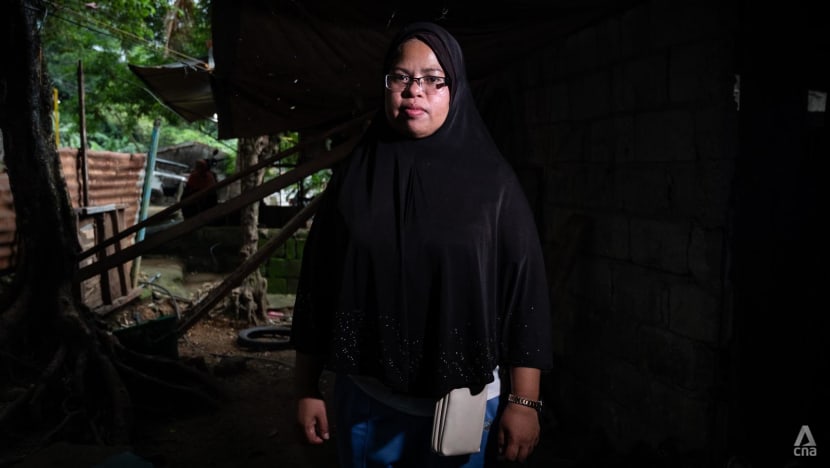
To keep her mind busy, Ayu tried looking for a job but owners of nearby restaurants and shops prefer someone younger. With her experience, she could try becoming a domestic helper again in Indonesia, but it would mean having to live with a family in cities like Jakarta where demands for such services are stronger.
She would also have to be away from her mother.
Ayu’s struggles are not uncommon among returning migrant workers around the globe. Many returnees - particularly those who have spent an extended period of time abroad - find it hard to reintegrate into their community of origin, sometimes leading to issues such as depression and anxiety.
Over the last five years, several organisations and migrant worker collectives have established support groups to make sure the stress and hassle of reintegrating back to their original communities are well mitigated.
Meanwhile, returnees also have had to deal with limited job opportunities in their respective countries - the very reason why many become migrant workers in the first place.
Governments in migrant worker sending countries like Indonesia and the Philippines have promised to address these issues by offering cash assistance, soft loans as well as entrepreneurship programmes and upskilling courses among others.
While there have been success stories, experts noted that they are the exceptions rather than the norm, adding that more work needs to be done to make sure these returning migrant workers do not fall back into poverty.
SOMEONE TO TALK TO
Faye Miranda left her three boys behind in Rodriguez, a municipality just outside of Metro Manila, in 2021 because her construction worker husband could not find work at the height of the COVID-19 pandemic.
She went to Kuwait to become a domestic worker but just four months before her two-year contract ended, her middle child suddenly became gravely ill and had to be rushed to the hospital.
“When I landed here on Mar 9, 2023, I went to the hospital straight from the airport. That’s when I saw that my son was already in a coma,” Miranda told CNA.
“It was so painful to me. Because I went abroad for my children, to give them a good life, to provide them an education.”
Miranda’s son, Jerome, was diagnosed with brain haemorrhage. He died at the age of 14 just four days after Miranda returned to the Philippines.
Riddled with guilt for not being able to be there for her son, the 41-year-old soon fell into depression with much of her days spent in bed sobbing.
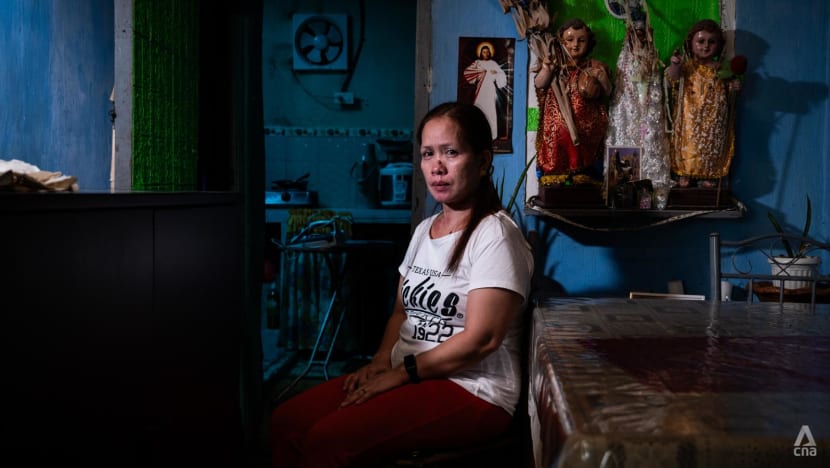

One day, a friend reached out to Miranda, offering her to come to a sharing session organised by a group of former migrant workers.
“Sharing my story with people who understand or have similar experiences helped me cope with the pain I feel inside,” Miranda said, adding that ever since she has been attending similar sessions and workshops organised by the group: Sandigan.
The group was founded in 2020, at the height of the pandemic, when the Philippines saw an influx of returning migrant workers because they either lost their jobs or feared that they would not be able to return home as host countries began closing their borders.
Similarly, support groups in Indonesia also began cropping up during the pandemic, particularly in areas with a large migrant worker population.
“Some of these groups started as informal gatherings of friends and neighbours. Most disbanded after one or two sessions but there are those which are still active today,” said Wahyu Susilo, executive director of Indonesian-based non-profit organisation, Migrant Care.
In Dadap - a village in the coastal region of West Java where nearly 80 per cent of its households have at least one member of the family who have worked overseas – such group began as an impromptu snack-making workshop back in 2020.
"A lot of people, be it returning migrant workers or those who stay in Indonesia, fell on hard times during the pandemic because there were no jobs both abroad or at home,” said Elly Kusumah, the coordinator of the village’s Migrant Workers’ Empowerment Group.
“We have a lot of cassavas in our village, so why not try to turn them into chips? We have a lot of fruits, so why not turn them into jams?”
As more former migrants participated in the programme, they began interacting more closely with each other. Elly noted that many were facing difficulties readjusting to life in Indonesia. Although Elly was never a migrant worker herself, she sympathised with their plights.
“Some felt they were ridiculed by family members because they now speak with a Malaysian accent and sounded like Upin Ipin,” she said, referring to a Malaysian cartoon programme popular in both Malaysia and Indonesia.
“Others shared about struggling to reconnect with their children after being away for so long. The problems varied.”
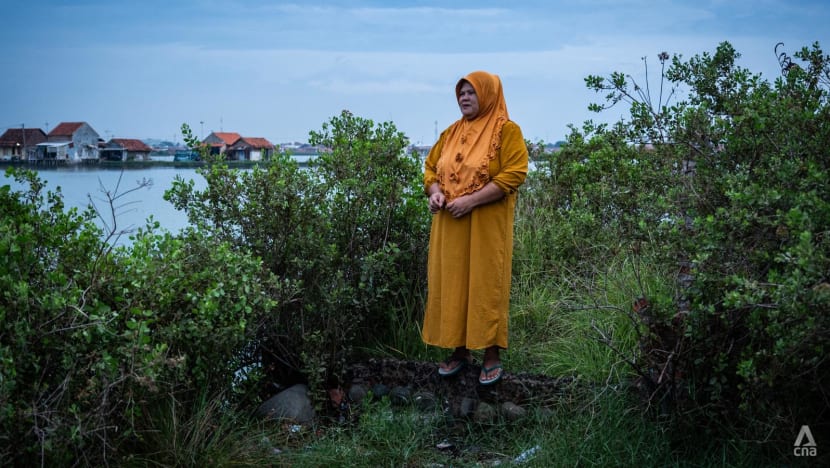
Disharmony between migrating parents and their children left behind is just one of the many impacts of migration.
Without the structure of a nuclear family and the love and attention provided by both parents, children sometimes misbehave, perform poorly at school or get into trouble.
Meanwhile, marriages are also put to the test, as infidelity runs rampant both abroad and at home.
CREATING MORE ENTREPRENEURS
Lack of support and acceptance can be a challenge for returning migrant workers looking to reintegrate back to their communities.
"During the migration process, people learn and adopt new skills, experiences and norms that shape and enrich their lives,” the International Organization of Migration (IOM) wrote in a study published last August.
“All these factors make it difficult for returning migrants to fit into their community of origin, as there is a rupture between who they are now and who they are expected to be by people who knew them prior to migrating.”
One way to gain acceptance and support is to prove that these returnees can once again become a productive member of their respective communities.
With the money he saved while working in Malaysia from 2002 to 2020, Ari Yulianto was able to start a business in his village in the mountainous region of East Java.
“One of my friends inherited a mushroom farm but he wasn’t interested in continuing his family business. So he sold the farm to me,” said the 40-year-old Indonesian.
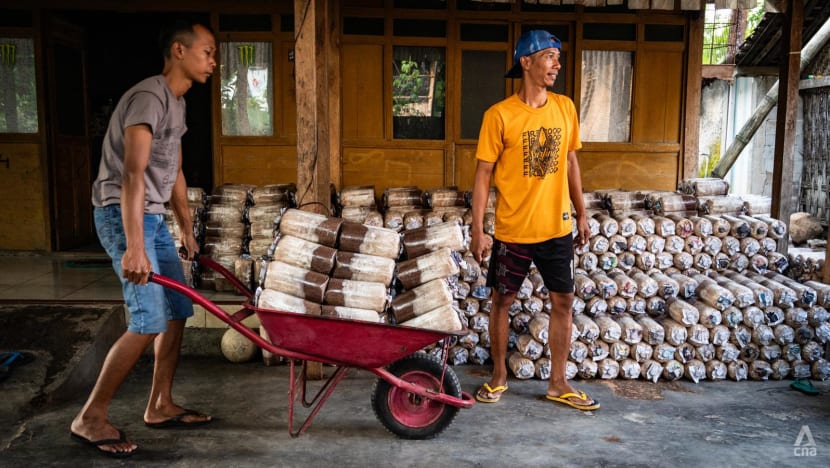
For the first few harvest cycles, his crop failed as mould infested his mushroom farm. But he refused to give up, adjusting his farming techniques until he got things right.
“Today, I’m making enough money to feed my family and employ two full-time workers,” Ari said, adding that his farm is able to produce one tonne of mushroom every month, earning him a profit of 15 million rupiah (US$913) monthly.
That amount is roughly twice what he made during his migrant worker days back in neighbouring Malaysia.
But not all migrant workers can save enough money to start their own businesses once they return home. Because of low financial literacy as well as peer and family pressure, many spend their pay unwisely making them unable to save anything or even fall into debt.
According to a 2019 study by the IOM, 31 per cent of the migrant workers from Southeast Asian countries surveyed said they had no change in their savings upon returning from overseas while 21 per cent saw their savings decrease after their migration.
About 17 per cent of migrant workers from Southeast Asia told IOM that they have accumulated debt upon returning home from overseas.
Indonesian Minister for Migrant Workers’ Affairs Abdul Kadir Karding has promised more upskilling courses and soft loans to encourage former migrant workers to start their own businesses.
“We are working with the Ministry of Small and Medium Enterprises to provide a low-interest business loan of up to 100 million rupiah,” Abdul said in a statement on Mar 6.
“We are also working with several educational institutions and communities to provide upskilling programmes which can help former migrant workers to be more economically independent.”
The initiative is still in its pilot stage and it is not known how many will benefit from it.
Meanwhile, the Philippine’s Overseas Workers Welfare Administration (OWWA) also has a similar programme. Since 2017, it has been providing grants of up to 20,000 pesos (US$350) for returning migrant workers as well as various entrepreneurship training for them.
But the number of beneficiaries for these programmes is limited. In 2023, only 3,348 returnees benefited from OWWA’s cash assistance initiative while 12,248 participated in its capacity building training and seminars. The Philippines welcomed around 800,000 returning migrant workers each year.
“The programme does little to alleviate poverty among returning migrant workers because it only provides a small amount of money to so few people,” said Marvin Rimas, the secretary-general of advocacy group Migrante Philippines.
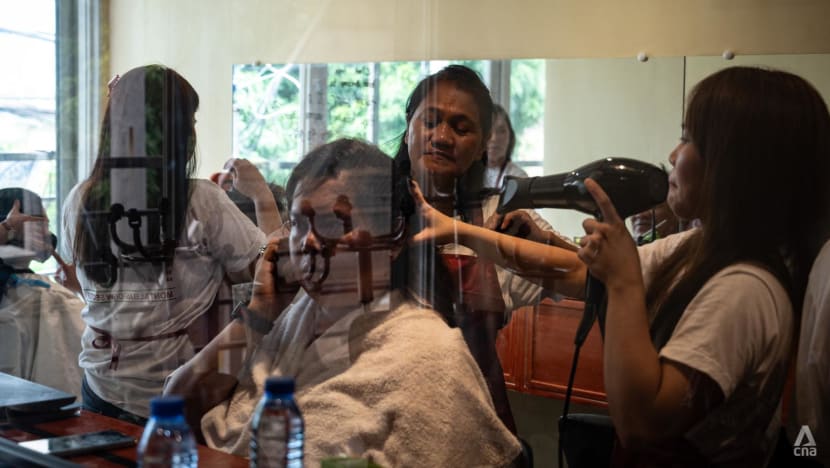
LONG TERM SOLUTION NEEDED
And despite the well-meaning initiative, not everyone is fit to be an entrepreneur.
Former migrant worker Ayu, for example, once dipped her toes in catfish cultivation, building two rectangular concrete ponds in her backyard as well as buying pumps, filters and other equipment before deciding several months later that it is not for her.
“(Catfish) are actually quite easy to cultivate but there is a lot of competition and demand is not so strong. So I ended up just giving the fishes away to neighbours,” Ayu said, adding that she also tried switching to other types of fish like tilapia and goldfish with similar disappointing results.
Ayu said she lost about 15 million rupiah in the fish venture, around a third of the money she saved from working overseas. She then tried her hands at opening a small shop selling drinks and snacks in front of her house.
“The profit margin is pretty slim and barely enough to cover expenses like keeping the refrigerator running,” Ayu said.
The venture is still running but with plenty of competition from similar shops in her village, she is unsure for how long.
What Ayu said she needs is a steady job, but with Indonesia seeing a decline in the number of middle class which affects household spending such as hiring a domestic helper, the future looks bleak.
Meanwhile, Angelo Jimenez - the president of the University of the Philippines and a long-time labour rights advocate - said migrant worker sending countries need to address rampant unemployment at home.
Indonesia and the Philippines have some of the highest unemployment rates in Southeast Asia, standing at 4.8 and 4.3 per cent respectively at the end of 2024. In contrast, Thailand had an unemployment rate of 1.02 per cent while Singapore had 1.9 per cent during the same period.
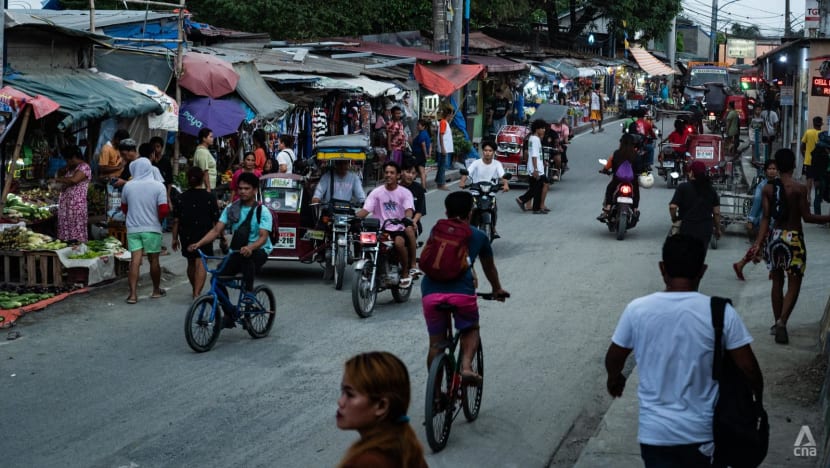
Overseas Filipinos sent home US$40 billion last year, according to the World Bank, contributing to 9.2 per cent of the Philippine’s gross domestic product (GDP). Meanwhile, Indonesians abroad sent home US$11 billion last year, representing 0.8 per cent of the country’s GDP.
“Remittances from migrant workers have contributed so much to these countries’ economies that some governments spend more time promoting and encouraging people to work overseas than developing their own industries,” Jimenez said.
“The most important thing for a country is to provide jobs so that migration becomes only a choice and not a necessity.”
In the Philippines, Miranda is also looking for a job, which she believes will not only supplement her family’s income but also keep her mind away from the grief of losing a child.
But with limited job opportunities available in her hometown, Rodriguez, finding work has not been easy.
“People (in the Philippines) are afraid of hiring a former migrant worker because they think we expect a big salary. That is not the case,” she said. “They also want someone who is young and has degrees, diplomas and certificates. I don’t have those things.”
To supplement the family’s income, Miranda has been selling snacks, earning just a few dollars every morning. In the afternoon, she goes downtown to look for work.
“It’s tiring and rejection after rejection makes me feel like a failure,” Miranda said, adding that it sometimes made her fall deeper into a state of depression. “For now, I will keep trying. But if my luck doesn’t change, I might as well become a migrant worker again.”
Disclaimer: Investing carries risk. This is not financial advice. The above content should not be regarded as an offer, recommendation, or solicitation on acquiring or disposing of any financial products, any associated discussions, comments, or posts by author or other users should not be considered as such either. It is solely for general information purpose only, which does not consider your own investment objectives, financial situations or needs. TTM assumes no responsibility or warranty for the accuracy and completeness of the information, investors should do their own research and may seek professional advice before investing.
Most Discussed
- 1
- 2
- 3
- 4
- 5
- 6
- 7
- 8
- 9
- 10